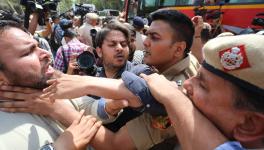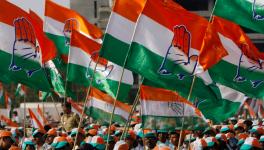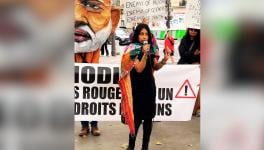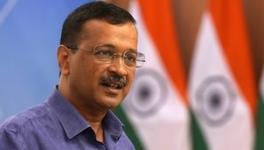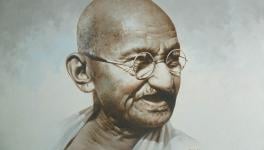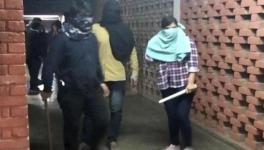Delhi Violence 2020: 4 Years on, Shadow of Violence Looms
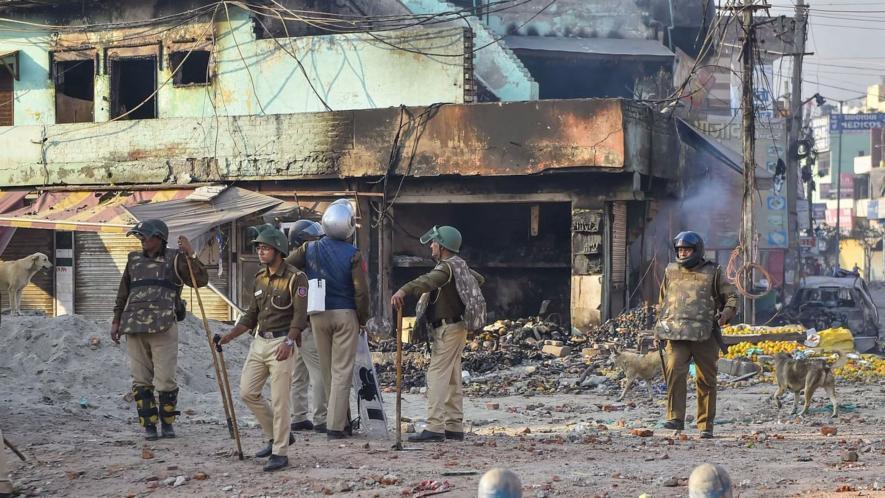
File photo (Image credit: PTI)
In 2020, just before the pandemic struck, the Northeastern parts of the nation’s capital were struck with communal violence. Even four years after the incident, which took place from February 23 to February 27 in the bustling capital of India, Delhi, as the general assembly Lok Sabha elections approach this year, the reports have arrived that the Delhi Police fears violence ahead of the elections. Hindustan Times reported that the police has been given an advisory and it has now decided to keep ‘an eye out for’ protestors who had taken part in the 2020 anti-CAA (Citizenship Amendment Act) movement and to keep vigilant in ‘communally sensitive’ zones of the city. The police have thus been reportedly advised to take preventive steps.
The Delhi violence case, however, has progressed slowly after the series of violent incidents which saw over 50 people dead, 38 Muslims and 15 Hindus, and 700 injured. A committee, formed by the Delhi Minorities Commission in the aftermath of the violence noted that over the next three days in February 2020 mobs spread across the district in Delhi targeting Muslims.
According to a report by The Print, 183 individuals have been acquitted, and 75 have been discharged in 757 registered cases in connection with the violence. The case has seen many twists and turns. In November 2023, a court acquitted 7 people after the prosecution reportedly failed to prove that these people were part of a violent mob. Despite the evidence of video recording, the video recording was not admissible as evidence according to the court because it was examined to check for manipulation. In another instance, a court remarked on the Delhi police’s investigation as a ‘shoddy probe’, and slammed them for manipulating evidence without conducting real investigation.
Similarly, in June 2023, The Hindu reported that the Karkardooma Courts had acquitted four Muslim men within a span of nine days the In two separate cases related to the 2020 Delhi riots stated that there was a lack of evidence against them. In October 2023 according to The Hindu, once again the court directed the Police Commissioner to start an inquiry into the conduct of the Investigating Officer (IO) who had drafted the charge sheet the court said was only relying on ‘hearsay evidence.’ Additional Sessions Judge Pulastya Pramachala stated that, “Regrettably, previous IOs have caused significant delays for this court by submitting investigation reports founded on hearsay evidence.”
In recent news from January last month, the Special Public Prosecutor Amit Prasad is one of the special prosecutors who represents Delhi Police in the 2020 Northeast Delhi riots cases, took back his resignation after he tendered it on December 15, 2023.
A report from 2020 by The Wire reported on the case as the Delhi police tried to prove its claim that the Delhi riots were a conspiracy organised by anti-Citizenship Amendment Act protesters. The Delhi Police had reportedly accused several prominent figures including Sitaram Yechury, the general secretary of the Communist Party of India (Marxist), world renowned economist Jayati Ghosh, Delhi University professor and public intellectual Apoorvanand as well as others. The essay also argues that the Delhi police seem to be trying to ‘intensifying target of its critics’ by implying that figures like Yechury and Ghosh were also part of the conspiracy.
Furthermore, in another twist in 2023, as per a report by India Today, speaking at a public event in Bengaluru, Justice S. Muralidhar, the former Chief Justice of the Orissa High Court, stated that he was confused about the central government’s reaction to his verdict in the Delhi riots case. In February 2020, Justice Muralidhar had presided over three urgent sittings addressing pleas regarding police inaction during the Delhi riots and had issued an order instructing the Delhi Police to ensure the safety and treatment of riot victims after an emergency midnight hearing was called at his home. Furthermore, he had directed the government to provide temporary shelter, treatment, and counselling for those displaced by the riots. However, this proved to be his final say in the matter as reports state that immediately after this order, the government transferred Justice Muralidhar to the Punjab and Haryana High Court, according to India Today.
However, despite the trajectory of the court cases, the lives of the victims remain affected unchangeably by the violence. As part of the government’s formulated scheme to compensate victims of the riots, people who had experience the death of their kin would receive Rs. 10 lakh.
The government has compensated the kin of the 53 people who lost their lives, according to a report by Frontline Magazine, however people still live in the shadow of the violence. The Frontline reported the story of Shabnam, a 30-year-old resident of Khajuri Khas. Her husband, Mohammad Amjad used to operate a mobile repair shop from their home which was destroyed when a mob set their house on fire. The couple is currently still grappling with the ongoing financial setback and losses they faced after the violence.
Shabnam shared with Frontline, “My husband, even though he never shows it, is very stressed. He has changed as a person since the violence. Our house was burnt, and we had to spend multiple days confined in a cramped room in a nearby house with over 50 people. We had to take extreme measures, like throwing our own children from one terrace to another, just to ensure their safety.”
Several activists and students were arrested in relation to the violence. These accused people are charged under various sections of the Indian Penal Code (IPC), 1860, and the often termed draconian Unlawful, Activities (Prevention) Act (UAPA), 1967. Currently, six of them have been granted bail, while the remaining continue to endure imprisonment.
Several of these originally incarcerated have been granted bail, one of which is one Mohammed Faizan Khan, a mobile seller who was granted bail four months later, and then Safoora Zargar, a student activist from Jamia Millia Islamia was given bail due to her six-month pregnancy. Ishrat Jahan, a former Congress councillor and advocate, was also granted bail by a session’s court. In June 2021, the Delhi High Court granted bail to activists Devangana Kalita, Natasha Narwal, and Asif Iqbal Tanha citing lack of evidence in June 2021. The judgement in Asif Tanha’s case was a lead judgement, path-breaking in the manner in which it examined the “offences” under the UAPA.
Some of the names, who continue to be incarcerated as undertrial detainees in the case include Khalid Saifi, a 42-year-old member of the Delhi-based United Against Hate organisation, Umar Khalid a student leader and activist, Sharjeel Imam, a PhD scholar from Bihar, Meeran Haider, a student leader associated within the Rashtriya Janata Dal Youth Wing, and student activist Gulfisha Fatima. Along with these there are Tasleem Ahmed, an education consultant, Athar Khan, a former employee of a Delhi-based telecom company.
Meenakshi Ganguly, who is the South Asia director of Human Rights Watch has said in connection to the case, “Indian authorities have been targeting activists for harassment and arrest instead of impartially investigating allegations that BJP leaders incited violence and police officials were complicit in attacks.”
During a gathering in 2022, UN Special Rapporteur of Human Rights Defenders (HRD), Mary Lawlor too voiced concerns on the arrest, and has stated that the Indian government is trying to criminalise human rights defenders by charging them under the Unlawful Activities (Prevention) Act (UAPA).
According to Amnesty International, the Unlawful Activities (Prevention) Act (UAPA) is frequently used by the government as a means to put aside human rights and suppress dissent.
According to Al Jazeera, the law was originally introduced in 2008 by the Congress party and there onwards it underwent several changes in 2019 under the government of Prime Minister Narendra Modi. These changes give the authorities more power to label people and not just organisations as terrorists. While the UAPA has been used by many Indian governments, its usage has exponentially risen in recent years.
In 2020, the conviction rate under the UAPA stood at 2% as government data shows that out of the 5,922 people arrested under the law from 2016 to 2019, only 132 resulted in convictions. Thus, critics argue that the law functions more as an easy tool of harassment, allowing the government to intimidate, imprison, and target individuals critical of its policies. The deliberate slow duration in the investigative processes and the highly strict bail provisions within the UAPA contribute to lengthened detention, and provide a welcome environment for unlawful confinement and often, even torture.
Get the latest reports & analysis with people's perspective on Protests, movements & deep analytical videos, discussions of the current affairs in your Telegram app. Subscribe to NewsClick's Telegram channel & get Real-Time updates on stories, as they get published on our website.









